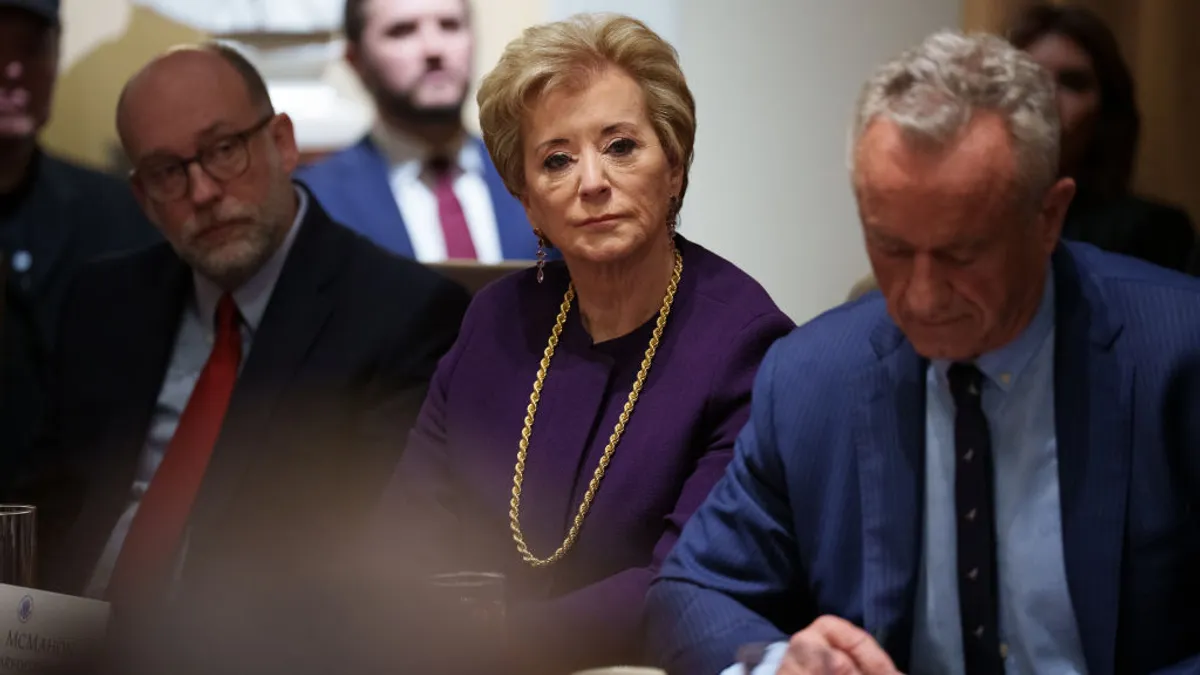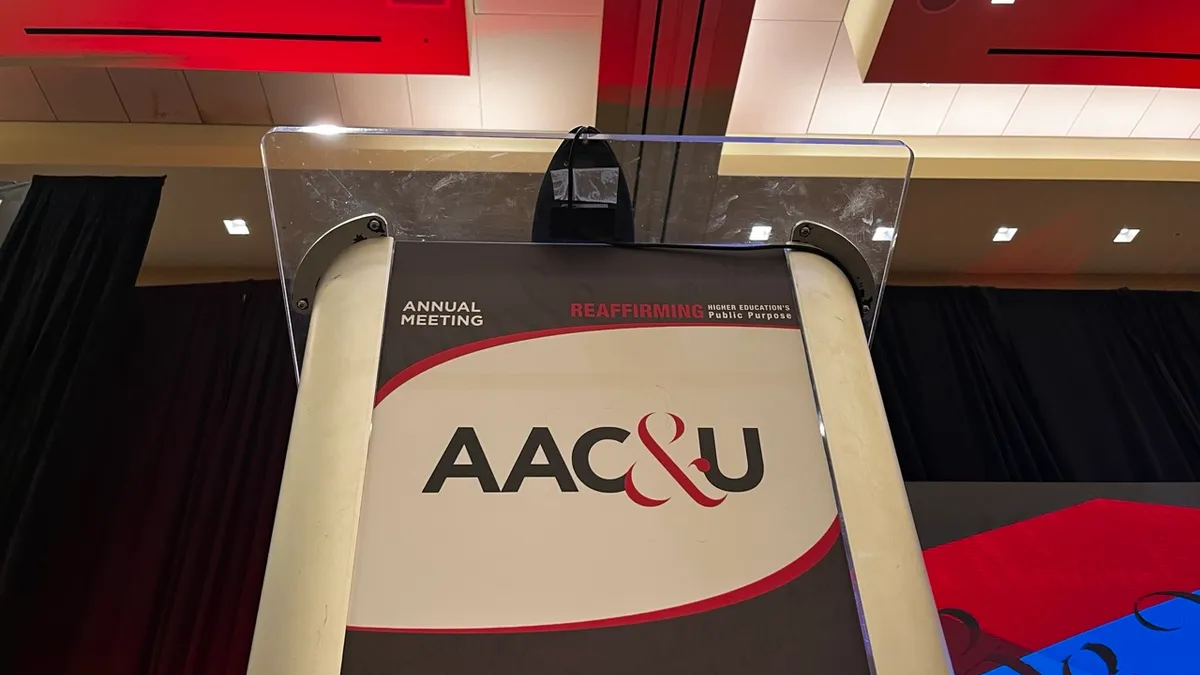Roger Perry had a mentor in his first year as a University of North Carolina at Chapel Hill trustee in 2002, an experienced board member who would impart a simple piece of advice: "First do no harm."
In Perry's view, the current roster of trustees has failed that mission.
Perry, a prominent developer, went on to chair the Chapel Hill board from 2007 to 2009. He is no longer a board member but has watched as scandal plagued the flagship institution for years. These controversies were widely scrutinized in the higher education world, where they were thought to be rooted in state political influences on the campus board of trustees and the UNC system's governing body.
This year, the Chapel Hill board at first did not grant tenure to Nikole Hannah-Jones, a Black Pulitzer Prize-winning journalist, an extraordinary break from tradition after a faculty committee had endorsed her. The story, which came to a boil this summer, exposed on a national scale allegations of racism and partisan forces hamstringing UNC's governance structures. Hannah-Jones, who was eventually offered tenure, opted instead to teach at a historically Black institution, Howard University.
Perry and other alumni and faculty had enough. They knit together a group, Coalition for Carolina, which aims to free the university from political pressures and return autonomy to administrators and campus leaders.
It's an ambitious goal. The state's Republican-dominated legislature controls appointments to the system governing board and several seats on Chapel Hill's, so structural advances the coalition seeks would likely have to result from Democrats taking power and restocking those boards.
However, the coalition's founders say they have started to agitate for change.
They seemingly have no precedent to follow. Nationally, most attempts to shake up public higher ed governance have stemmed from campus officials or lawmakers, not citizens. But as new debates about threats to academic freedom arise, some wonder if the coalition could serve as a model for reforming besieged administrations elsewhere.
A Republican takeover
Problems at the flagship institution began escalating more than a decade ago, when Republicans claimed a majority in the legislature and started filling the UNC system governing board with like-minded individuals. Prior to that, even if one party was in power, the board still saw some political diversity.
State lawmakers appoint all of the system board members, a somewhat unusual governance structure.
The state's General Assembly also appoints several members of UNC-Chapel Hill's board, with the remainder being elected by the system board and one ex officio student representative. The governor also used to name some campus trustees, but the legislature stripped that ability in 2016, between the time Democrat Roy Cooper was elected governor and when he assumed office in 2017.
Lawmakers' desires trickled down, which can be reflected, for example, in high turnover rates among the campus chancellors and system presidents.
The Coalition for Carolina is starting its work against that backdrop, first by expanding its membership among instructors, alumni and donors, said Mimi Chapman, the faculty chair of UNC-Chapel Hill and a founder of the new group. She didn't have an estimate of how many individuals have joined since it debuted in September, though The Daily Tar Heel, the UNC-Chapel Hill student newspaper, reported in mid-October that 600 people had signed up with the group.
The coalition evolved from the concerns of a loose network of individuals, Perry said. Many Chapel Hill alumni are clued into university affairs and disagreed with the boards' "meddling interference," Perry said.
He believes the campus board has already taken notice of the group's growing ranks and efforts. The group has made itself hard to ignore, announcing its arrival with a splashy, full-page advertisement in an alumni publication.
Chapman, as faculty chair, had been uninvited from meetings of the Chapel Hill trustees' university governance subcommittee, an "unprecedented" slight, Perry said. But the trustees reversed that decision, which he attributes to the coalition.
"By no means have we reined them in," Perry said. "But they seem to be paying attention."
The chair and vice chair of the Chapel Hill board did not respond to requests for comment. Chapel Hill trustees, along with those at other UNC universities, recently redelegated what authority falls to campus administrators versus individual governing boards, as directed by the system governors this summer. As part of that work, the campus board in October took approval power over appointments of associate and assistant vice chancellors and associate deans and assistant deans, removing that responsibility from Chancellor Kevin Guskiewicz.
The university provided a statement from Guskiewicz in response to questions about the coalition's work.
He said in part that as "a taxpayer-supported public institution, our partnership with the General Assembly is critical. We are continuing to serve the people of North Carolina and beyond through the University’s priorities and accomplishments as a great public research institution."
Pulling strings
For those unaware how the powers that be constrain campus administration, the coalition wants to educate them, Chapman said.
This dynamic came to a head just at the end of November when Chapman, in the Tar Heel, accused the campus trustees and system governors of pressuring Guskiewicz to make a specific pick for a new provost.
"In any nonprofit organization, boards choose the CEO, and the CEO chooses their team through search processes that should be transparent to all," Chapman wrote. "The Chancellor should make the choice of who is his second in command after receiving good advice from all rightfully involved. For me, I stand willing to support and work with whomever the Chancellor chooses as long as I know that it was his choice, freely made."
And when UNC-Chapel Hill was preparing to open last fall in the pandemic, Guskiewicz told a university faculty committee he believed campus officials would have the power to shift their institutions' courses online if needed. But following those comments, UNC Board of Governors Chair Randy Ramsey emailed the campus chancellors and said the board and new system president would make those decisions.
These fights damage relationships between campus administrators and students and faculty, especially those who don't know many problems originate with the governing boards, Chapman said.
This mistrust was tangible recently with student and employee response to administrators' handling of a string of suicides and and suicide attempts at Chapel Hill. At least two deaths by suicide have been reported since September.
Guskiewicz drew chagrin for only canceling classes a single day, Oct. 12, in response. The date had already been designated as a partial day off for the institution to observe University Day, a celebration marking when the university started constructing its first campus building.
The administration took heat for not prioritizing student mental health, not offering more days off, and a lack of information provided in its communications, as the news of the deaths had already made the rounds on social media before Guskiewicz made an announcement, Chapman said.
Not everyone saw the administration's response in the same light.
Samantha Meltzer-Brody, chair of the department of psychiatry at UNC-Chapel Hill, said she thought the correspondence from Guskiewicz was "very honest and very good," noting privacy laws restrict how much information colleges can share about student deaths.
"There's an inherent tension in how communication works in the social media space, and the rules and governance of universities," said Meltzer-Brody, who led a one-day mental health summit online in November to discuss how the campus should respond to mental health challenges.
Chapel Hill announced Wednesday that it will observe an additional wellness day in the spring term. Classes are canceled April 14, creating a four-day weekend because the next day was a previously scheduled spring holiday. Guskiewicz and other university leaders said they plan to add wellness days in future schedules.
Plunging morale
Governing boards' political underbellies may not be exposed to everyone, but in Lloyd Kramer's eyes, more faculty are learning.
Kramer is a longtime professor at UNC-Chapel Hill and former faculty chair. He's also a coalition member.
Budget restrictions on the system, largely due to state disinvestment, have driven down morale, Kramer said.
Roughly eight years ago, the legislature altered the state's tax structure, costing it billions of dollars since the changes were enacted. The UNC system "has had to bear the brunt of these cuts," according to another coalition of faculty, employees and graduate students within the system.
Campus buildings are in need of repair, Kramer said. Fewer hires have been made in his department over the last several years, and the diminished stake in UNC-Chapel Hill doesn't foster a campus environment with vitality, he said. High faculty turnover persists.
And conflicts at the university, which the media cover extensively, worsen the situation, Kramer said.
"Lots of good things are happening. There's amazing research taking place and good teaching every day," he said. "But it's sort of like a building that has leaky pipes, and our pipes are leaking."
Lawmakers and the system governing board especially are suspicious of UNC-Chapel Hill's mission, Kramer said. He added that they seem to believe a stereotype about higher ed: that colleges are liberal bastions intent on indoctrinating students.
In November, nearly 70 state representatives wrote to Guskiewicz, chastising a decision under which the university's Office of Fraternity and Sorority Life held a mandatory diversity training. They were displeased the program reportedly featured such topics as how White privilege pervades society.
Their complaints match the conservative animus nationwide against critical race theory, a 40-year-old academic construct that in part teaches racism is systemic.
"Programs like this perpetuate division, animosity and mistrust. It is very concerning, and also very sad, that this kind of propaganda is being mandated in a public university," the lawmakers wrote.
The balance of power in the legislature isn't likely to shift either, making the coalition's efforts an uphill battle. Republicans have ruled the North Carolina General Assembly for about 10 years and have moved to cement their power by redrawing political maps that bolster the GOP's chances to secure state and congressional seats.
Kramer said he believes the relationship between faculty members and various other parties needs to improve. This could be accomplished by arranging more robust and regular meetings between faculty and those groups: legislators, and the system and campus governing boards, he said.
"Lots of good things are happening. There's amazing research taking place and good teaching every day. But it's sort of like a building that has leaky pipes, and our pipes are leaking."

Lloyd Kramer
UNC-Chapel Hill professor
More informal opportunities for campus constituencies to talk with governing board members could benefit both sides, said Richard Novak, a senior fellow at the Association of Governing Boards of Universities and Colleges and a senior consultant at AGB's consulting arm.
He envisioned listening tours or sit-downs with students in dining halls as methods of trust-building.
A wholesale revision of governing practices is a bigger lift, Novak said.
Recent history shows it's difficult to change the way public higher ed governing bodies are built in the U.S. Two ballot questions last year in North Dakota and Nevada would have significantly altered the setup of those states' higher ed structures. Both were defeated.
But, Novak said, political interference should never bind public institutions.
"They've got to be free from undue influence, from donors, from any other group," he said. "That's key."























